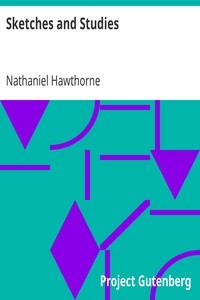Read this ebook for free! No credit card needed, absolutely nothing to pay.
Words: 221478 in 42 pages
This is an ebook sharing website. You can read the uploaded ebooks for free here. No credit cards needed, nothing to pay. If you want to own a digital copy of the ebook, or want to read offline with your favorite ebook-reader, then you can choose to buy and download the ebook.


: Captain Cook's Journal During His First Voyage Round the World Made in H. M. Bark Endeavour 1768-71 by Cook James Wharton W J L William James Lloyd Editor - Voyages around the world Early works to 1800; Oceania Discovery and exploration Early works to 180
SKETCH OF CAPTAIN COOK'S LIFE.
LIST OF PERSONS WHO LEFT ENGLAND IN H.M.S. ENDEAVOUR, 26TH AUGUST, 1768.
SKETCH OF CAPTAIN COOK'S LIFE.
CAPTAIN COOK'S life, or the account of so much of it as is recoverable, has been so often recounted that there is no occasion to insert more in this publication than is necessary as a reference to the reader, to enable him to realise the career and character of the man.
Many things in the following sketch are taken from Mr. Besant, to whom I wish to tender my acknowledgments.
James Cook rose from nearly the lowest ranks. The second son of James Cook, a Yorkshire labourer, and Grace his wife, he was born on the edge of the Cleveland Hills on February 27th, 1728, in the little village of Marton, which lies about four miles south-south-east of Middlesborough, and five miles west of the well-known hill and landmark, Roseberry Topping. Eight years later his father removed to Great Ayton, which lies close under Roseberry Topping.
At the age of thirteen Cook, who, it is recorded, had had some elementary schooling both at Marton and Great Ayton, was apprenticed to one Sanderson, a draper and grocer of Staithes, a fishing village on the coast, about fourteen miles from Ayton and nine north-west of Whitby.
A year later Cook went, or ran away, to sea, shipping at Whitby on board the Freelove, a collier belonging to the brothers Walker.
In this hard school Cook learnt his sailor duties. No better training could have been found for his future responsibilities. Here he learnt to endure the utmost rigours of the sea. Constant fighting with North Sea gales, bad food, and cramped accommodation, taught him to regard with the indifference that afterwards distinguished him, all the hardships that he had to encounter, and led him to endure and persevere where others, less determined or more easily daunted by difficulties, would have hurried on, and left their work incomplete.
All details of Cook's life during his thirteen years in the merchant service are lost: what voyages he made, how he fared, whether he advanced in general knowledge, all is gone. The only fact known is that in May 1755, when Cook was twenty-seven years of age, and mate of a vessel of Messrs. Walker, then in the Thames, he, to avoid the press, then active on account of the outbreak of the war with France, volunteered on board H.M.S. Eagle, of 60 guns, as an able seaman.
Captain Hugh Palliser, who succeeded to the command of this ship in October, was certainly Cook's warmest patron, and it would appear that Cook did work superior to that of an able seaman in the Eagle. Be that as it may, all that is absolutely known is that that ship took her share of the fighting at the taking of Louisbourg and elsewhere on the North American and West Indian Station, and returned to England in 1759.
The Mercury went to North America, and here Cook did his first good service recorded, namely, taking soundings in the St. Lawrence, to enable the fleet then attacking Quebec to take up safe positions in covering the army under Wolfe. This he accomplished with great skill, under many difficulties, in the face of the enemy, much of it being done at night. He was immediately employed in making a survey of the intricate channels of the river below Quebec, and for many years his chart was the guide for navigation. Cook was indeed a born surveyor. Before his day charts were of the crudest description, and he must have somehow acquired a considerable knowledge of trigonometry, and possessed an intuitive faculty for practically applying it, to enable him to originate, as it may truly be said he did, the art of modern marine surveying.
Free books android app tbrJar TBR JAR Read Free books online gutenberg
More posts by @FreeBooks

: Sketches and Studies by Hawthorne Nathaniel - United States History Civil War 1861-1865; American literature; Pierce Franklin 1804-1869


: Our Old Home: A Series of English Sketches by Hawthorne Nathaniel - England Description and travel; England Social life and customs 19th century; Hawthorne Nathaniel 1804-1864 Homes and haunts England; Americans England History 19th century






